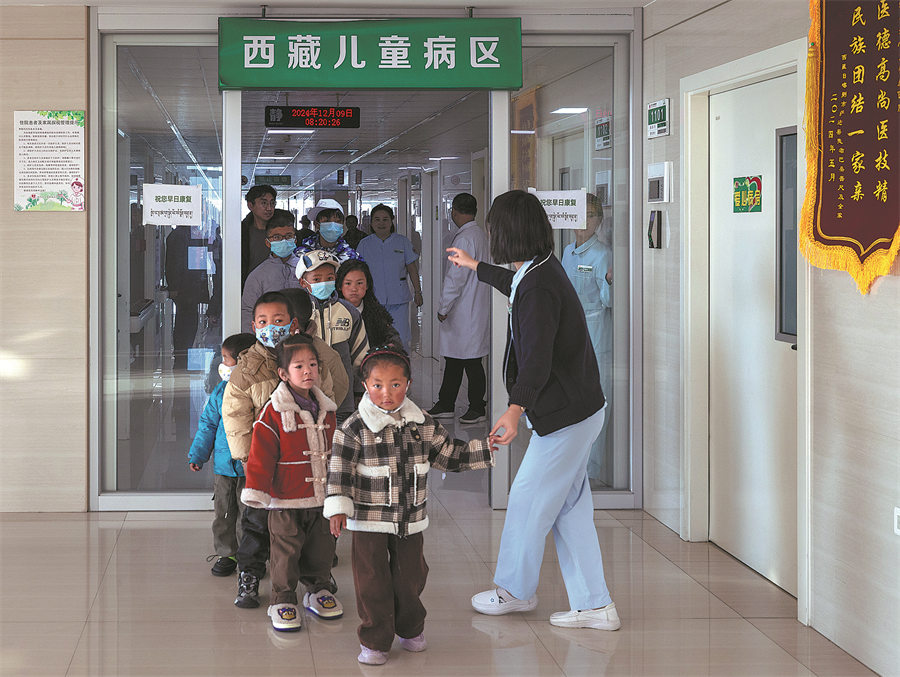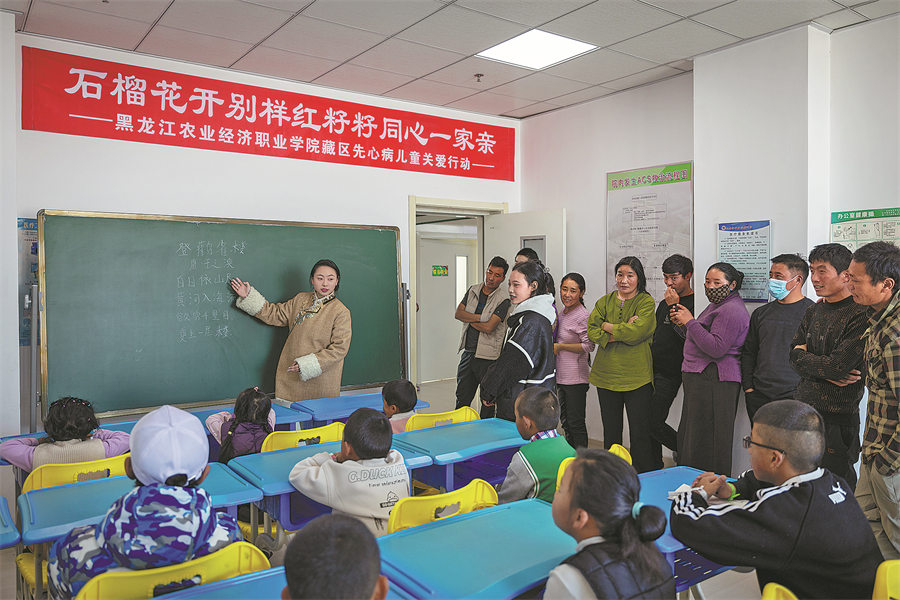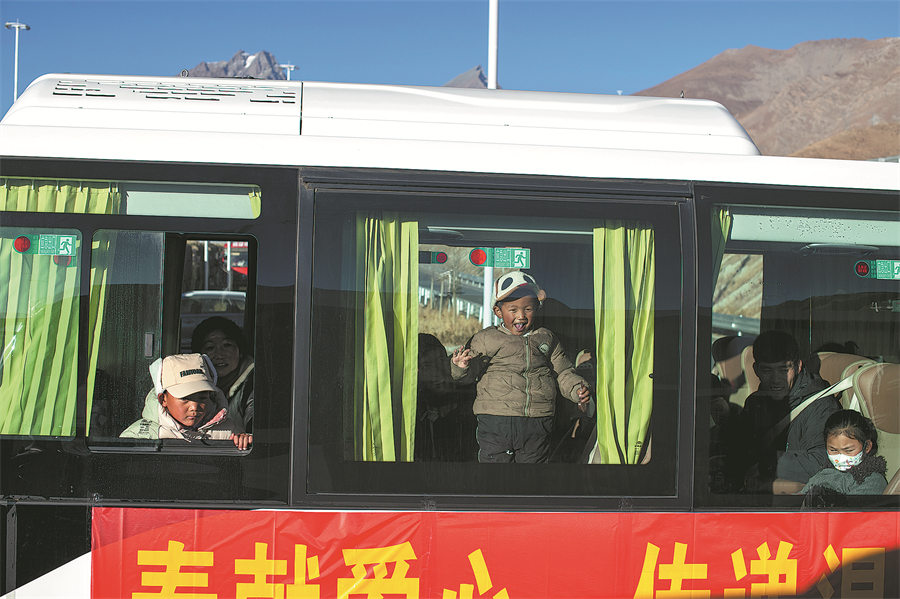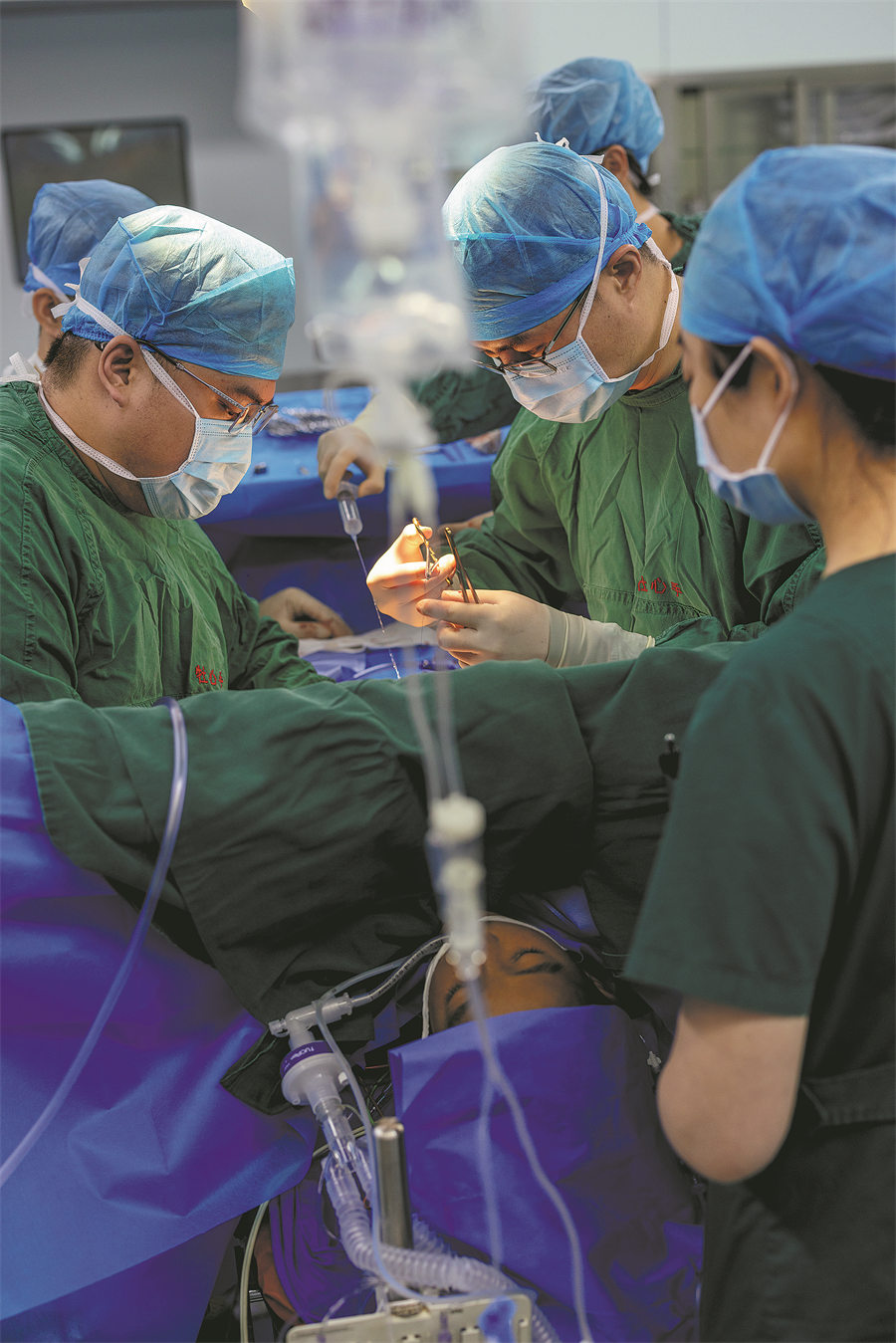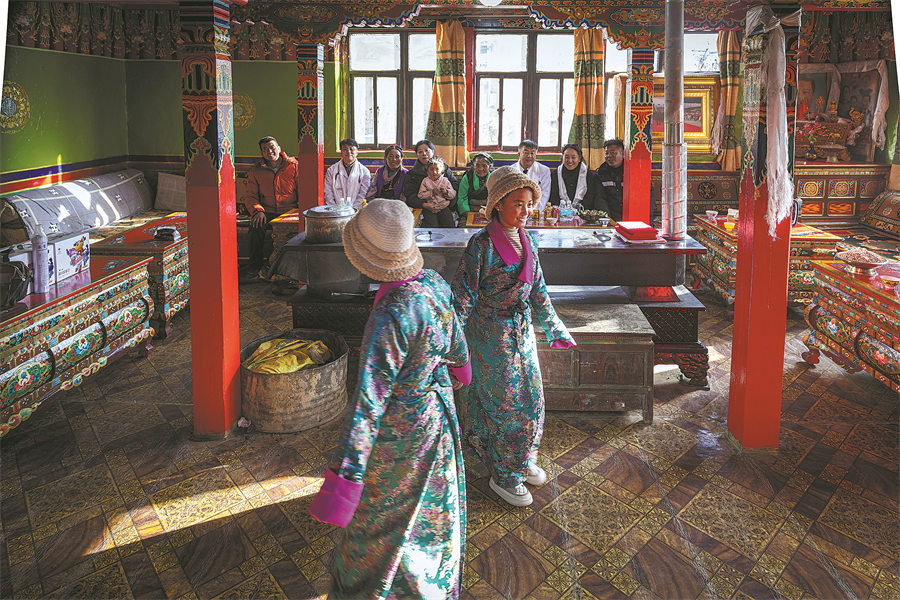
Medical team work to combat heart disease brought on by low oxygen levels at high altitude
The Chinese Red Cross Foundation launched a healthcare program in 2006 to provide medical treatment to rural children with congenital heart disease.
The flagship hospital for the initiative was Mudanjiang Cardiovascular Hospital in Northeast China's Heilongjiang province.
Since 2015, the hospital has switched from a passive "waiting for patients" approach to an active "identifying potential patients" strategy, dispatching medical teams across more than 40 counties and cities in Heilongjiang, who have screened some 600,000 children.
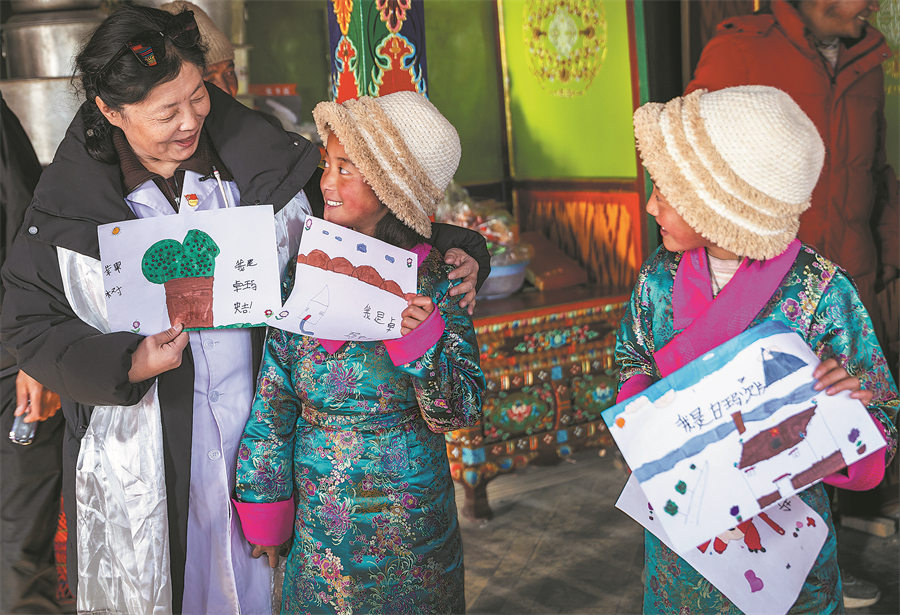
In 2019, the scope expanded to the Xizang autonomous region. By the end of last year, the medical team had made nine trips to Xizang, screening over 87,000 children and performing surgery on 364.
On a recent mission to Xizang, the medical team escorted 17 children, who had been hospitalized, and their families back to their hometown of Shigatse city, Xizang.
Meanwhile, medical staff conducted follow-up examinations on patients with a focus on postoperative care. At the invitation of the health authorities in Gyalze and Saga counties in Shigatse, the team screened 2,432 children for congenital heart disease.
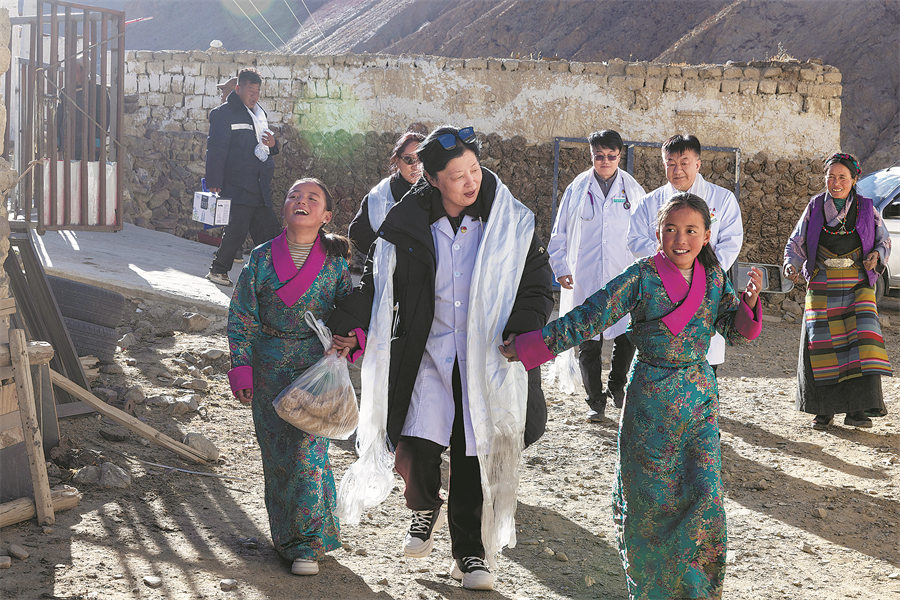
Li Yulong, the hospital's director of public welfare projects, known for her exuberant personality, led the team for the ninth time. She organized screenings for the children, recorded patient information, and occasionally handed portable oxygen tanks to doctors to help alleviate their altitude sickness.
Shigatse lies at an average altitude of 4,000 meters above sea level, and poses significant health challenges due to its high altitude and low oxygen levels, making it a hot spot for congenital heart disease.
On the evening of Dec 1, 2024, Huang Min, an ultrasound specialist from the medical team, reassured the last child and the family, saying, "The results are clear, everything is fine". This declaration marked the successful conclusion of congenital heart disease screening in the two counties.
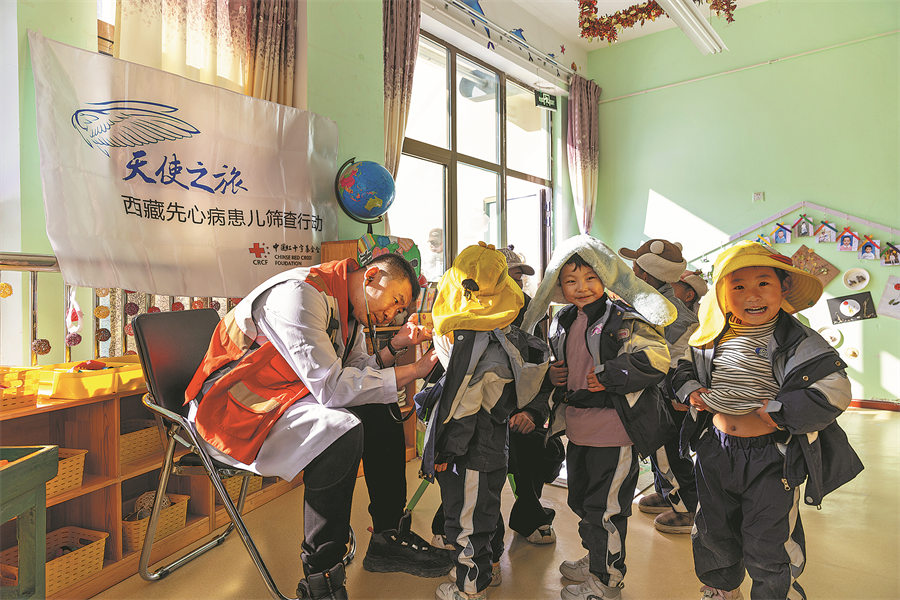
"We identified 21 children this time. Eleven of them will return with us to Mudanjiang for surgery, while the others will be scheduled for treatment later," says Li.
By the end of 2024, nine out of the 11 children had already undergone successful surgery. The youngest in this group was 4 years old, while the eldest 15.
Jin Zhongqiang, deputy director of the hospital's cardiovascular surgery department, says that while the economic conditions in Xizang have become better, the residents' health awareness still needs to improve. "We hope that through broader health education, we can raise awareness about congenital heart disease and the importance of screening," Jin says.
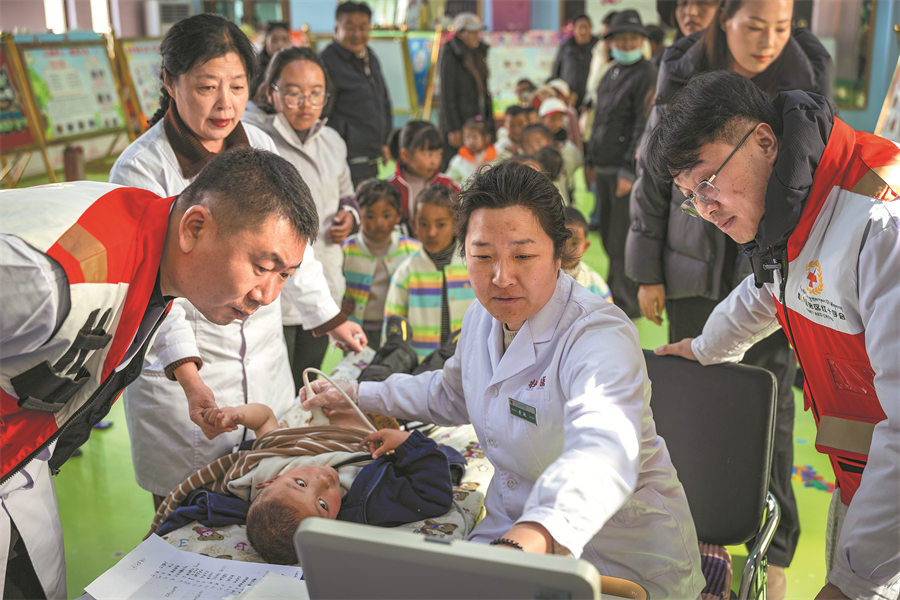
Zhang Xiaoyu, Party secretary of Mudanjiang Cardiovascular Hospital, echoes the hospital's commitment to continuing its collaboration with the Shigatse health authorities, aiming for comprehensively screening of all eligible children and ensuring that every identified case receives timely treatment.
"We are determined to let the program shine from the snowy forests of Heilongjiang to the foot of Mount Qomolangma," Zhang says.
